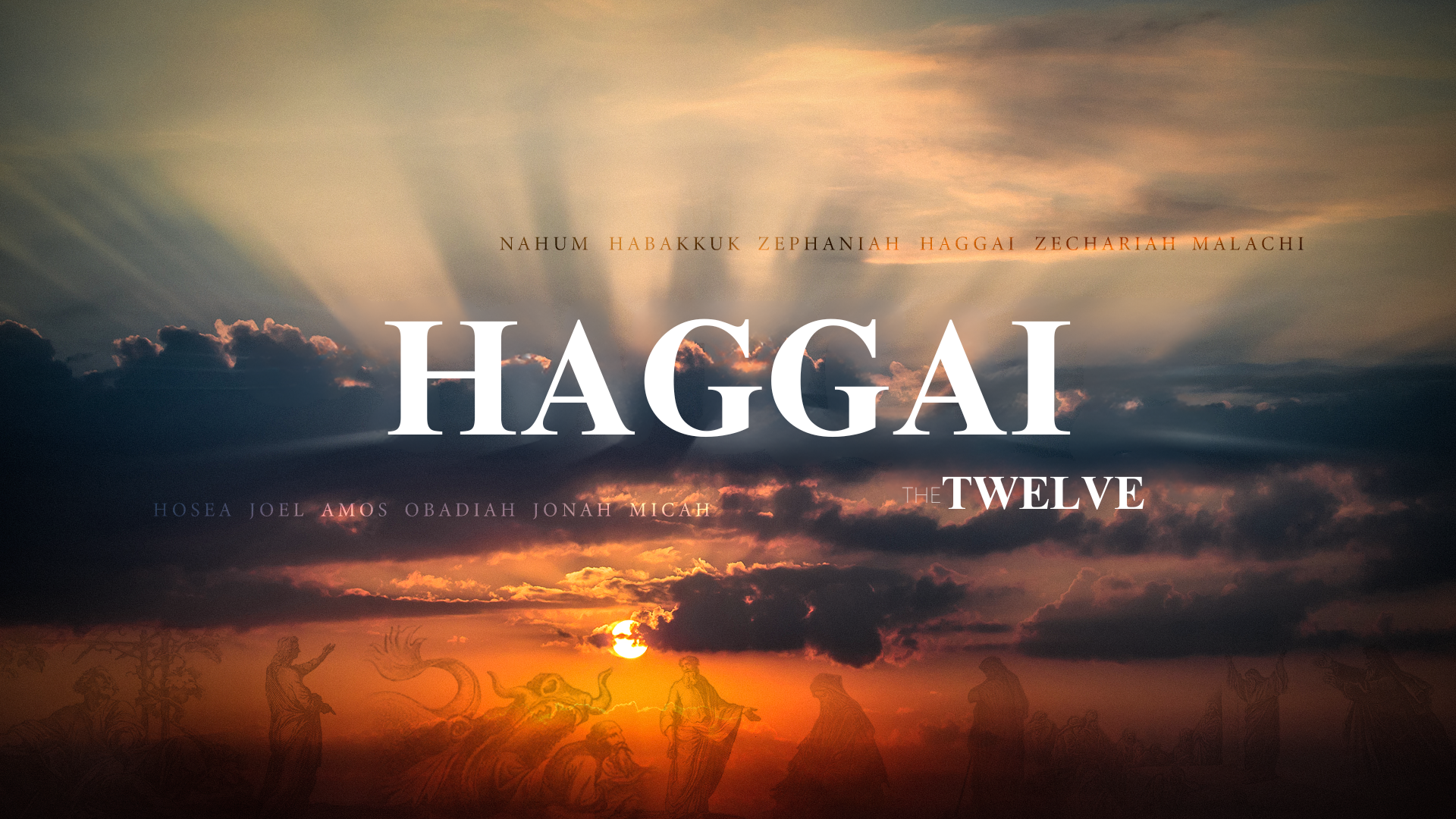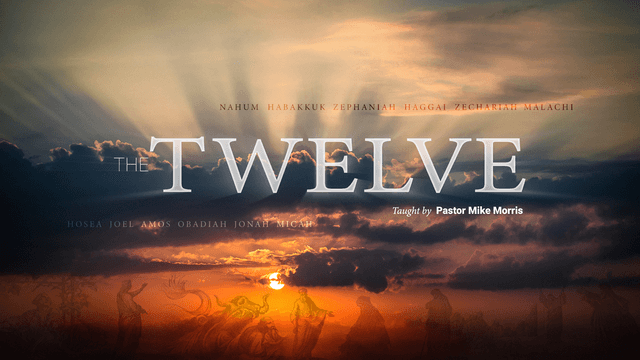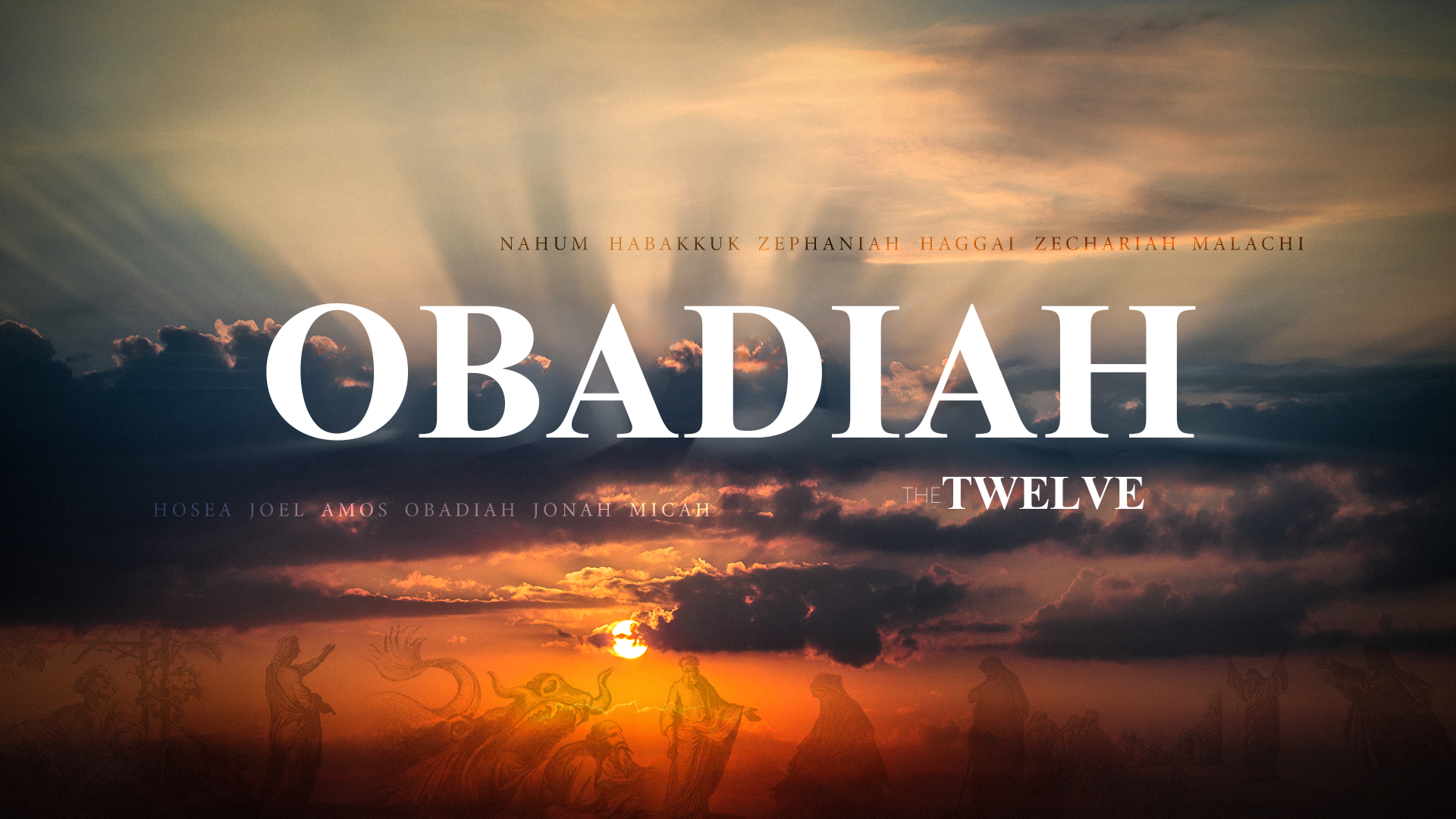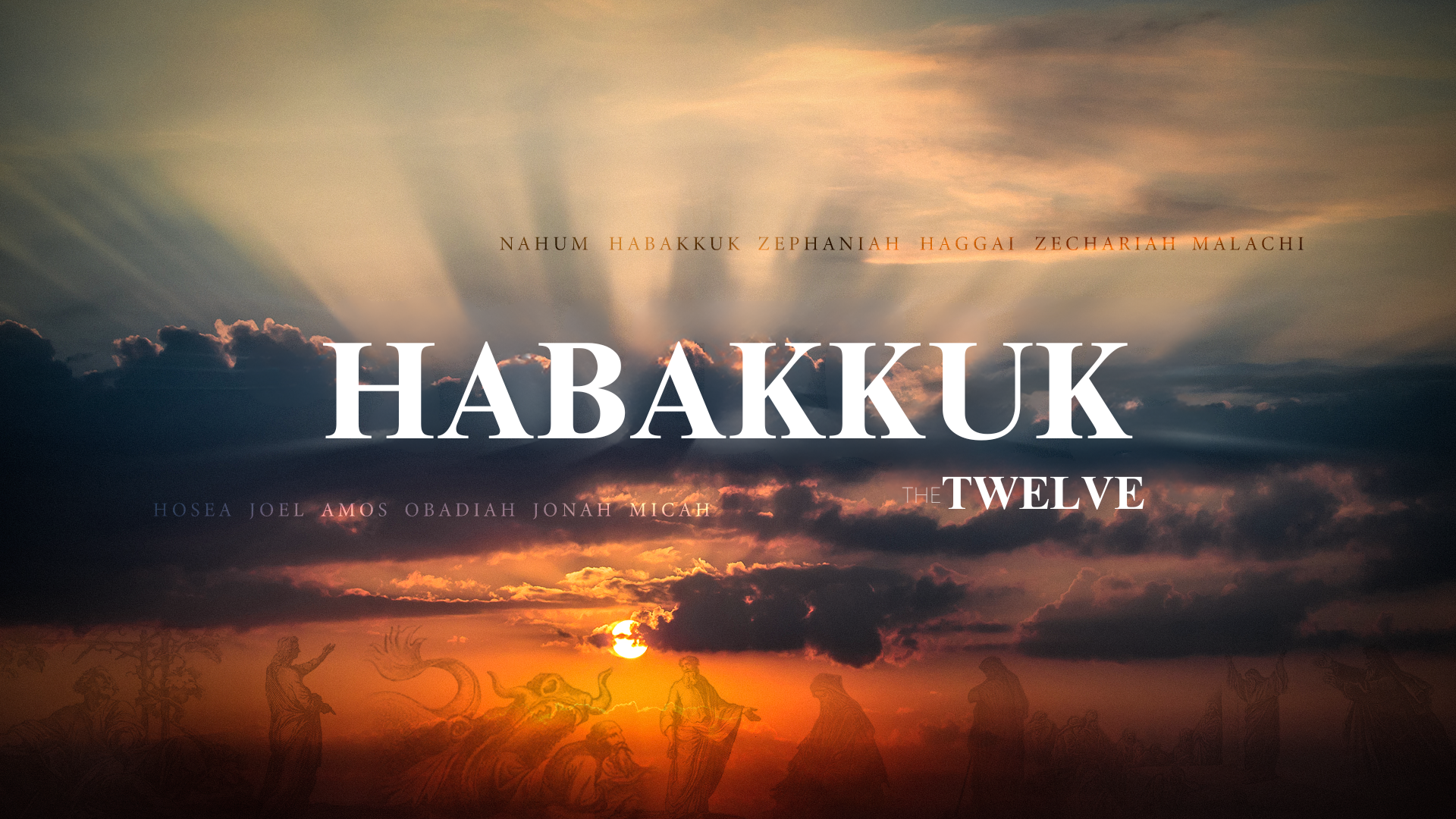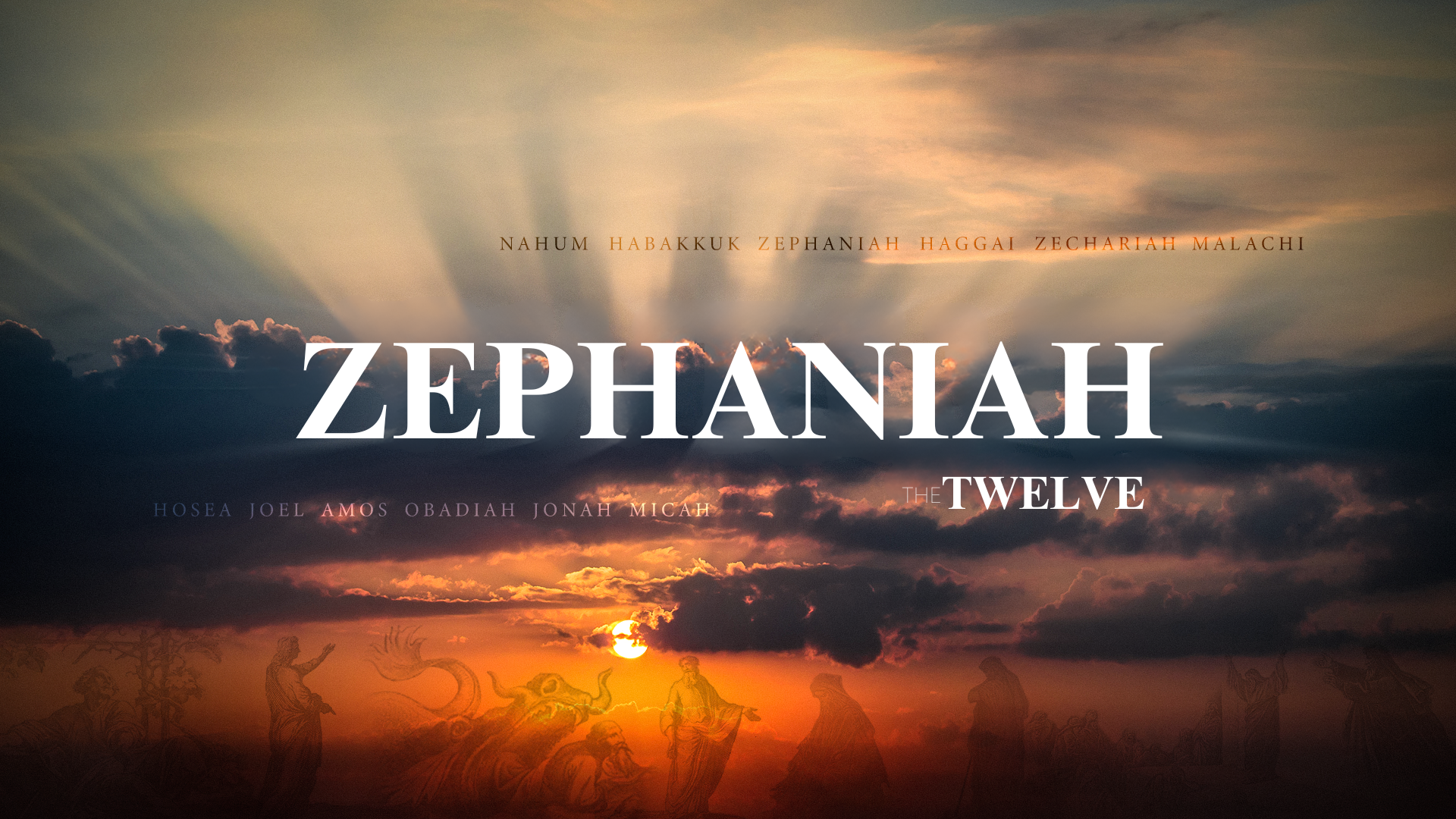MANUSCRIPT
(SLIDE) As we ended our study of the prophets to Israel, we concluded with the book of Micah, who was the transitional prophet...the final prophet to Israel and the first voice of warning to Judah...as we return today to the short book of Nahum (three chapters, forty-seven verses), we find a two-edged sword: a word of certain judgment to the nation of Assyria, but a word of comfort to Judah...this slide is included to remind us that God chose Assyria as an instrument of judgment against the apostate northern kingdom of Israel, resulting in their exile in 722 BC, and the capture of many of the fortified cities of Judah (ancient historical records say 46 cities/200,150 people) about 701 BC, but not the conquest of Jerusalem, which was saved through divine intervention as recorded in II Kings 18 & 19...
(SLIDE) As we turn to Judah, you’ll see Nahum as the second green bar above the timeline, about 650 BC...today we’ll finish this short prophecy by covering chapters 2 and 3, which flow naturally out of the introduction of chapter 1
Topic and structure: This brief book has an equally brief topical statement...ch 1 v 1 simply says it’s about Nineveh, the capital of Assyria...what we know from other OT books, and extrabiblical historical sources, is that Assyrian was the superpower of what we would call today the Middle East, and was renowned for their military might and their cruelty; they are mentioned frequently in the OT, in 5 of the 12 minor prophets and 3 of the 4 major prophets...
Author: The author is Nahum, whose name means “comfort”...other than that, we know almost nothing about him, other than what we can conclude from the text...some commentators have called him the “poet laureate among the Minor Prophets”
Location: The text says he is from the town of Elkosh, which remains unknown to us today as to its exact location...
Date: Based on the text itself, the date falls between 663 BC, which we know is the date of the fall of Thebes, the capital of Egypt, which is spoken of in 3.8-10 as a past event, and the fall of Nineveh, which is spoken of as a future event, which we know happened in 612 BC, a range of 51 years...most likely date is 629 B.C.
Theme: There is one overarching theme to this short oracle -- Slide (CUE) God is powerful above all...the power and sovereignty of God is presented in both His judgment of the wicked and His salvation of the righteous...Psalm 115.3...this deep truth about God and His ways is exemplified in the relationship between Assyria, particularly Nineveh, and Judah, and is understood in covenant language...it’s important to remember that context as we look at the text of the book...but to get started, let’s review ch 1, v 2
The Lord is a jealous and avenging God;
the Lord is avenging and wrathful;
the Lord takes vengeance on his adversaries
and keeps wrath for his enemies.
From the very beginning of the book, Nahum declares the identity of Yahweh given to him...a fitting description of God here would be to see Him as a divine Warrior...God tells the prophet to tell His people that He is jealous, vengeful, and wrathful, and that His vengeance and wrath would fall upon God’s enemies...and this second verse is what the world will not believe...that God is sovereign and righteous and will enforce His will throughout the earth...we don’t often see this facet of God’s character, but make no mistake – He says three times that He is holy, and here He says three times that He is an avenging God...as John says in I John 4.8, God is love, but that’s not all He is...we cannot emphasize the aspects of God’s character with which we are comfortable and ignore those with which we are uncomfortable...and a repeated statement of the Lord to Nineveh in chapters 2 and 3 is “I am against you” and all that Nineveh represents: pride, self-righteousness, arrogance, cruelty, greed...and He will show forth His vengeance...
As we begin the second and third chapters, the focus of the prophecy changes from the promise of God to judge the city of Nineveh and the Assyrian empire, to a vision of the prophecy fully coming to pass...
We see the promise clearly in Nahum 1.8-9...
But with an overflowing flood
he will make a complete end of the adversaries,
and will pursue his enemies into darkness.
9 What do you plot against the Lord?
He will make a complete end;
The fulfillment of God’s promise begins in ch 2 v 1...and as we begin, let us consider another truth: Slide (CUE) God is (patient), but He will also (judge)...God had endured for hundreds of years the proud and brutal Assyrians and their vicious conquests of Israel, all of Judah save Jerusalem, and all of the rest of the known world...they believed themselves to be undefeatable, but no earthly kingdom can endure the judgment of the Almighty God...see Numbers 14.18
Just so, let’s apply this to ourselves: God is patient with sinners, enduring our pride and selfishness and folly...but if we persist in our sin apart from Jesus Christ, we will one day discover that though His patience is long, His judgment is certain...hear the words of Paul to the church in Rome in Romans 2.4-5...
4 Or do you presume on the riches of his kindness and forbearance and patience, not knowing that God's kindness is meant to lead you to repentance? 5 But because of your hard and impenitent heart you are storing up wrath for yourself on the day of wrath when God's righteous judgment will be revealed.
Those who ignore His kindness, will experience His judgment...certainly the lost, but the saved will endure His discipline to correct us and restore us...turn to Him while there is yet time...we must repent of our sins and our hardened hearts and renew our relationship w/Him
Let’s return to the text in ch 2 v 1...the prophet speaks to Nineveh and the text begins by introducing a new character, “the scatterer”
1 The scatterer has come up against you. Man the ramparts; watch the road;
dress for battle; collect all your strength.
Here, as so often in the prophets and in all of Scripture, there is more than one meaning to the text...in the near-term, the “scatterer” was the very king to whom Daniel gave the interpretation of his dream in Daniel 2, Nebuchadnezzar of Babylon...God would use Babylon to bring down the fearsome Assyrians, conquering Nineveh in 612 B.C., fulfilling the divine truth of Daniel 2.21: he (God) removes kings and sets up kings;
But the ultimate fulfillment of this “scatterer” is our Lord Jesus Christ, as we find prophesied again in Daniel 2.44-45...
44 ... the God of heaven will set up a kingdom that shall never be destroyed, nor shall the kingdom be left to another people. It shall break in pieces all these kingdoms and bring them to an end, and it shall stand forever, 45 just as you saw that a stone was cut from a mountain by no human hand, and that it broke in pieces the iron, the bronze, the clay, the silver, and the gold.”
Jesus, the rock of our salvation, is the stone cut from a mountain by God’s hand, His kingdom shall crush and replace all earthly kingdoms and bring them to an end, and He will reign forever and ever...and in place of the wickedness of the oppressors of God’s people, God will restore His majesty once again,
2 For the Lord is restoring the majesty of Jacob as the majesty of Israel,
for plunderers have plundered them and ruined their branches.
He will save Israel and ultimately all His people from the power of the wicked, rebuilding the fallen booth of David, as we saw in Amos 9.11-12...a passage quoted by James, the elder of Jerusalem, in Acts 15.13-19, and interpreted to include the inclusion of the Gentiles as the church into the covenant people of God...Jesus will save and restore His people, though all the world oppose Him...this is the crux of the message to the people of Judah...God was about to restore the majesty of Jacob...though they were small and would in fact, soon fall to the Babylonians only 25 years later, He would return them to the land...God speaks to His people here in hope much as Hosea spoke to Israel, the northern kingdom, in Hosea chapter 14...
Now the scatterer begins battle preparations...
3 The shield of his mighty men is red;
his soldiers are clothed in scarlet.
The chariots come with flashing metal
on the day he musters them;
the cypress spears are brandished.
4 The chariots race madly through the streets;
they rush to and fro through the squares;
they gleam like torches;
they dart like lightning.
5 He remembers his officers;
they stumble as they go,
they hasten to the wall;
the siege tower is set up.
The Babylonians, in alliance with the Medes, will prepare their soldiers city to attack Nineveh, the city long thought to be insurmountable...protected on the east, north, and south by forts and defensive positions, and on the west by the Tigris River, Nineveh appeared to be impregnable...and for the first time the Assyrians see troops and chariots massing outside their walls, preparing to do battle...the most advanced weapons of the day, chariots, and foot soldiers with shields and spears, and siege towers being constructed, just as the Assyrians had done themselves to the Israelites when they besieged Samaria, Israel’s capital...but now the battlefield is Nineveh...they day of destruction they had brought upon so many others was now being visited upon them...and don’t forget that this prophecy was written for the people of Judah...think what hope this would give them as they realize that what they had scarcely thought possible – the fall of Assyria – would be brought about by their covenant God...
Now Nahum describes the prophetic fall of the city, in both poetic and literal terms...
6 The river gates are opened;
the palace melts away;
7 its mistress is stripped; she is carried off,
her slave girls lamenting,
moaning like doves
and beating their breasts.
8 Nineveh is like a pool
whose waters run away.
“Halt! Halt!” they cry,
but none turns back.
As Nineveh is overrun, helped in part by a flood of the Euphrates, either natural or engineered, the river gates are opened, likely draining the water sources of the city into the Tigris and undermining the foundations of the palace...verse 7 is difficult to translate...it could be a proper noun, a common noun, or a verb...most likely it is a verb instead of a noun...the NIV translates it as “it is decreed” in the feminine, meaning the city of Nineveh itself is stripped of all its wealth, which is plundered by the attackers...her slave girls lament with typical acts of mourning...Nineveh is figuratively and literally emptied, and the cry to stay is ignored by the common people of the city, as they run without looking back...we’ll see more about that in chapter 3...
And for the Babylonians and Medes, there is much in the city to take, for Assyria had been plundering cities and whole nations for centuries...this victory would have added significant wealth to Babylon...
9 Plunder the silver,
plunder the gold!
There is no end of the treasure
or of the wealth of all precious things.
The city is ruined as the leaders and the people experience themselves the destruction they had brought to others...
10 Desolate! Desolation and ruin!
Hearts melt and knees tremble;
anguish is in all loins;
all faces grow pale!
11 Where is the lions' den,
the feeding place of the young lions,
where the lion and lioness went,
where his cubs were, with none to disturb?
12 The lion tore enough for his cubs
and strangled prey for his lionesses;
he filled his caves with prey
and his dens with torn flesh.
This portion of the chapter presents a vivid comparison...anguish, despair, and fear of the people as the Babylonians attack and crush the city, while they remember what Nineveh once was just days before...the home of a pride of lions, their renowned military, undefeated and untied for more than a hundred years, the preeminent power in all the world...Nahum taunts the Assyrians, mocking their previous domination, asking “where is the lion den now?” You’ve been the alpha predator for so long, but the Almighty God is about to rearrange the power structure of the Middle East...
Now in verse 13, we reach a singularly clear statement about God’s perspective on the Assyrian empire’s military power and heartless brutality...He simply says this...
13 Behold, I am against you, declares the Lord of hosts, and I will burn your chariots in smoke, and the sword shall devour your young lions. I will cut off your prey from the earth, and the voice of your messengers shall no longer be heard.
The Lord of all the earth declares that He is against “you” – we need to look back a bit in the book and see who the “you” in this verse represents...at one level, it is Ashurbanipal, the king of Assyria, the last great king they had before God’s judgment fell and the empire was effectively dissolved...but the deeper answer is the one who was operating behind the scenes, the one the Lord refers to in chapter 1 verse 15... never again shall the worthless pass through you; he is utterly cut off....you recall when we covered that chapter we learned that the Hebrew word translated “worthless” is ‘belial’ commonly used in the OT for ‘wickedness’ or ‘worthlessness’ and is found extensively in OT-era extrabiblical material, including the Qumran scrolls, where it describes the leader of the forces of darkness...it is used once in the NT, where II Corinthians 6.14-15 says this... For what partnership has righteousness with lawlessness? Or what fellowship has light with darkness? 15 What accord has Christ with Belial?
The Lord is against our ancient adversary, Satan, and He is against every human institution, power, or government which aligns itself with our arch-enemy, from Genesis, through Assyria, to the present day...
On to chapter 3...
1 Woe to the bloody city,
all full of lies and plunder—
no end to the prey!
“Woe” renders Heb ‘hoy’ “alas!” – the Greek carries the sense of horror, pain, agony
Nineveh was full to the brim...lies and the plunder of dozens and dozens of cities, large and small...as chapter 2 verse 9 says, there was no end to the treasure...
Now Nahum describes the battle in vivid visual and auditory detail...
2 The crack of the whip, and rumble of the wheel,
galloping horse and bounding chariot!
3 Horsemen charging,
flashing sword and glittering spear,
hosts of slain,
heaps of corpses,
dead bodies without end—
they stumble over the bodies!
Bible students have long puzzled over the meaning of verse 4...
4 And all for the countless whorings of the prostitute,
graceful and of deadly charms,
who betrays nations with her whorings,
and peoples with her charms.
The Assyrians hardly had to sell themselves in the normal manner of a prostitute...but we start to see the meaning more clearly when we see other translations, like the NASB 1995 version, the NIV, and the NET, which all translate “charms” in the ESV as “sorceries” – the KJV uses “witchcraft” – this often refers to idolatry, spiritual prostitution, if you will, condemned in other prophetic books...Assyria did betray nations and peoples with her false religion and worship of Asshur, their war-god...no wonder that the Lord emphasizes again,
5 Behold, I am against you,
declares the Lord of hosts,
and will lift up your skirts over your face;
and I will make nations look at your nakedness
and kingdoms at your shame.
6 I will throw filth at you
and treat you with contempt
and make you a spectacle.
7 And all who look at you will shrink from you and say,
“Wasted is Nineveh; who will grieve for her?”
Where shall I seek comforters for you?
Another unusual passage...while we might struggle with the metaphor, it’s clear that God is going to humble and even shame Assyria, particularly Nineveh...this was the dominant world power, and had been for centuries...many nations and peoples had suffered at her hand, and when Assyria falls, everyone will know it and see it...I’m reminded of the fall of the Roman Empire, and the fall of the Soviet Union on Christmas Day, 1991...when a major world power is defeated and breaks apart, everyone notices...in the case of Assyria, everyone cheered as the tables were turned on them, and they endured the same cruelty they had inflicted on others...no one wept for her and sought to comfort her...I thought of the celebration scene in the movie, “The Wizard of Oz” as the Munchkins sing, “Ding, dong, the witch is dead!”
Now the prophet compares Assyria’s condition to the fall of Thebes, the capital of Egypt, only 25 years before...
8 Are you better than Thebes
that sat by the Nile,
with water around her,
her rampart a sea,
and water her wall?
9 Cush was her strength;
Egypt too, and that without limit;
Put and the Libyans were her helpers.
10 Yet she became an exile;
she went into captivity;
her infants were dashed in pieces
at the head of every street;
for her honored men lots were cast,
and all her great men were bound in chains.
Nahum reminds Assyria of their own conquest of Thebes, a temple-city thought to be untouchable, surrounded by the upper Nile...if Assyria thought they couldn’t be defeated, that they were invulnerable, that they were above God’s authority, all they had to do was remember Ashurbanipal’s defeat of Thebes in 663 B.C.
Nahum now skillfully applies those lessons to Assyria themselves...
11 You also will be drunken;
you will go into hiding;
you will seek a refuge from the enemy.
12 All your fortresses are like fig trees
with first-ripe figs—
if shaken they fall
into the mouth of the eater.
13 Behold, your troops
are women in your midst.
The gates of your land
are wide open to your enemies;
fire has devoured your bars.
Nahum prophesies that Assyria will stagger under the weight of the Babylonian attack...they will try to hide but will fail...all their vaunted fortresses surrounding and protecting Nineveh would be breached and would fall...the feared Assyrian troops, who had crushed other nations and capitals, would be unable to defend their own city...the end of verse 13 is especially telling...the language speaks to complete vulnerability and destruction...the city gates were open to the enemies, and could no longer be shut...the bars that were part of Assyria’s security were destroyed...
Nahum’s taunt of Assyria continues...
14 Draw water for the siege;
strengthen your forts;
go into the clay;
tread the mortar;
take hold of the brick mold!
15 There will the fire devour you;
the sword will cut you off.
It will devour you like the locust.
Multiply yourselves like the locust;
multiply like the grasshopper!
The prophet describes what people would do when faced with an imminent attack or the dreaded siege...they would get as much water as possible inside the city, in case access to water was lost...they would strengthen their defenses, in an attempt to withstand foot soldiers trying to scale the walls, or a battering ram at the gates...those efforts would include, if possible, making bricks inside the city to be used for reinforcing weak points...so Nahum says, find the clay, prepare mortar, use the brick mold......but it isn’t going to help you...even while you’re making the bricks, he says, the fire will devour you, the sword will cut you off...when the Almighty God is against you, making more bricks won’t matter...to paraphrase the US Marine Corps, you can run, or make bricks, but you’ll only die tired from the effort...in the case of Nineveh, the Assyrians’ labor will not change the outcome...even if they could have multiplied themselves like the locust, they would still have fallen to the Babylonians...
But what about those who weren’t the king and his court, and the Assyrian military? Nahum gives us some valuable insight into the question of what happened to the rest of Nineveh...female slaves were mentioned in chapter 2, now we learn about merchants, princes, and scribes...
16 You increased your merchants
more than the stars of the heavens.
The locust spreads its wings and flies away.
17 Your princes are like grasshoppers, (guardsmen, guards)
your scribes like clouds of locusts (marshals, officials)
settling on the fences
in a day of cold—
when the sun rises, they fly away;
no one knows where they are.
The merchant class of Assyria was large, to say the least...the plundering of the Assyrian military brought untold treasure into Nineveh, so there was much commercial activity there...they, along with the princes (sometimes translated ‘guards’ ones who watch over something) and scribes (marshals or officials) run for their lives...like locusts that have flown, no one knows where they are, but they have fled Nineveh...
So this raises an interesting and important point...while we might think that the entire population of Nineveh was killed by the Babylonians, based on the text, that isn’t the case...given that the Lord in other OT passages commands the total destruction of populations, such as the Amalekites in I Samuel 15, and given the cruelty of the Assyrians, we might expect Him to take that step here, but He doesn’t...why?
Because Assyria still has a role to play in the final days...Isaiah 19.23-25 says this...
23 In that day there will be a highway from Egypt to Assyria, and Assyria will come into Egypt, and Egypt into Assyria, and the Egyptians will worship with the Assyrians.
24 In that day Israel will be the third with Egypt and Assyria, a blessing in the midst of the earth, 25 whom the Lord of hosts has blessed, saying, “Blessed be Egypt my people, and Assyria the work of my hands, and Israel my inheritance.”
The Lord drew Assyria to repentance under the preaching of Jonah a hundred years before...now He will judge them for their sins of pride, arrogance, and cruelty...but He will not make a complete end of them...they still have a purpose in God’s plan... Slide CUE God is (purposeful)...as we see clearly in Isaiah 46.9-10
Now Nahum draws his short book of prophecy to a close...
18 Your shepherds are asleep,
O king of Assyria;
your nobles slumber.
Your people are scattered on the mountains
with none to gather them.
19 There is no easing your hurt;
your wound is grievous.
All who hear the news about you
clap their hands over you.
For upon whom has not come
your unceasing evil?
Nahum shifts the focus of the prophecy one last time as he speaks directly to the senior leaders of the empire...Nahum addresses the king, Ashurbanipal, concerning two groups of people: the shepherds and the nobles...the word “nobles” isn’t figurative...they are members of the ruling class of a nation...but “shepherds” is used figuratively...for in the OT, kings and rulers were often called “shepherds”...the term is used throughout all parts of the OT, both of the leaders of Israel, and of Gentile nations, too...similarly, “asleep” and “slumber” are figurative, too, euphemisms for death...so what is Nahum’s message? O King, the leaders and nobles of your people are dead...the people of Nineveh are scattered, proving that the work of the scatterer from ch 2 v 1 is complete...you have been defeated...help is not coming, your kingdom is lost...and all the world applauds your downfall, for by your evil and wickedness all have suffered
Thus ends the book of Nahum...but our learning from it is not yet done...
What lessons is the Lord teaching us from this prophecy?
As we saw, God is powerful above all...let me expand a bit on that
Over the wicked...He is the righteous Judge
Over the redeemed...He is the Good Shepherd
Over the events of this world, both good and bad, pleasing and displeasing Slide II Chronicles 20.5a-6
He is patient, but never mistake God’s patience as overlooking sin...His timing is always perfect...when the time is right, He will act on His timetable, not ours... Slide Habakkuk 2.3
And He is purposeful...He sees the end from the beginning, and what He starts He completes...Slide Philippians 1.6
As we step into a new and challenging week, may we know our God intimately...follow Him obediently...and worship Him fully...

Taught by Mike Morris
Associate Pastor of Verse By Verse Fellowship
The Twelve Series






